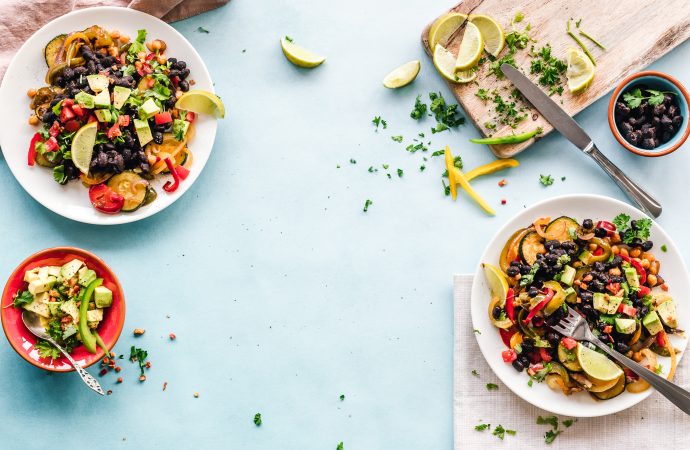Introduction: Salads have long been celebrated as a nutritious and wholesome meal option. Packed with vibrant vegetables, leafy greens, and an array of toppings, salads are often perceived as a go-to choice for health-conscious individuals. However, amidst the sea of nutrition information, it’s important to distinguish between the health benefits of a well-constructed salad and
Introduction:
Salads have long been celebrated as a nutritious and wholesome meal option. Packed with vibrant vegetables, leafy greens, and an array of toppings, salads are often perceived as a go-to choice for health-conscious individuals. However, amidst the sea of nutrition information, it’s important to distinguish between the health benefits of a well-constructed salad and the hype surrounding its nutritional value. In this article, we will unmask the truth behind the nutritional value of salads and explore how to create truly healthy and nourishing salads.
The Power of Vegetables and Leafy Greens:
At the core of any salad lies a bed of vegetables and leafy greens. These colorful and nutrient-dense ingredients provide a host of vitamins, minerals, and dietary fiber. Leafy greens like spinach, kale, and arugula are particularly rich in antioxidants, folate, and vitamin K. Incorporating a variety of vegetables into your salad ensures a diverse range of nutrients that support overall health and well-being.
The Role of Protein:
Protein is a vital component of a balanced meal, and salads can be an excellent vehicle for incorporating this essential macronutrient. Grilled chicken, tofu, beans, lentils, or even quinoa can serve as protein sources in your salad. Protein not only provides satiety but also plays a crucial role in muscle repair and growth, immune function, and hormone production.
Choosing Healthy Fats:
The presence of healthy fats is essential for a well-rounded salad. Healthy fats, such as those found in avocado, nuts, seeds, and olive oil, contribute to the feeling of fullness and aid in the absorption of fat-soluble vitamins. Including a source of healthy fats in your salad can also help regulate blood sugar levels and promote heart health.
Beware of Hidden Culprits:
While salads have the potential to be nutritious, it’s important to be mindful of hidden culprits that can undermine their healthfulness. Some common pitfalls include excessive portions of high-calorie toppings like cheese, croutons, bacon, and creamy dressings. These ingredients can add unwanted calories, unhealthy fats, and sodium. Opt for lighter dressing options, use toppings in moderation, and focus on incorporating nutrient-dense ingredients.
Variety is Key:
To truly maximize the nutritional value of your salad, embrace variety. Experiment with a wide range of vegetables, fruits, whole grains, and lean proteins. Incorporating different textures, flavors, and colors not only makes your salad more interesting but also ensures a diverse intake of essential nutrients. Consider adding ingredients like berries, citrus fruits, quinoa, nuts, and seeds to enhance both the taste and nutritional profile of your salad.
Dressing Wisely:
The dressing can make or break the nutritional value of a salad. While store-bought dressings can be convenient, they often contain added sugars, unhealthy fats, and artificial ingredients. Making your own dressing allows you to control the ingredients and create a healthier option. Opt for dressings made with olive oil, vinegar, lemon juice, or Greek yogurt as a base. These alternatives provide healthier fats and fewer additives.
Conclusion:
The nutritional value of salads lies in the careful selection and combination of ingredients. While salads have gained a reputation for being healthy, it’s crucial to separate the reality from the hype. By incorporating a variety of vegetables, leafy greens, lean proteins, healthy fats, and homemade dressings, you can create salads that are truly nourishing and support your overall health and well-being. Remember, it’s the thoughtful composition and balance of ingredients that make a salad truly nutritious.

















Leave a Comment
Your email address will not be published. Required fields are marked with *